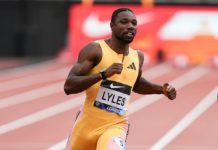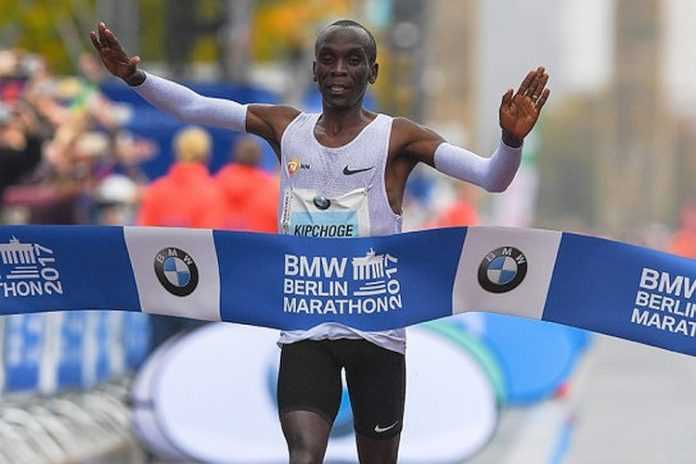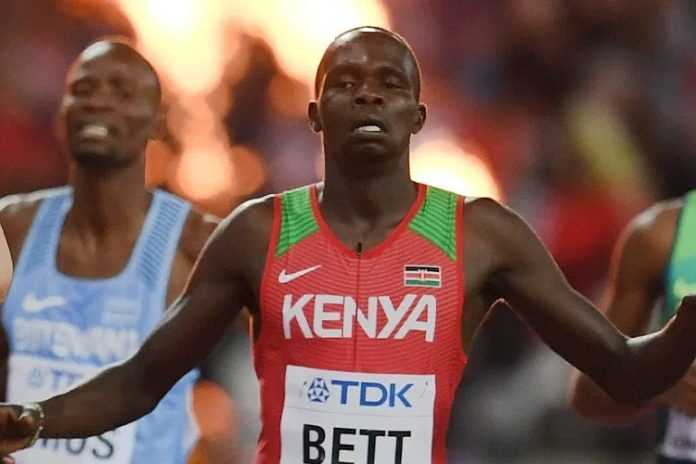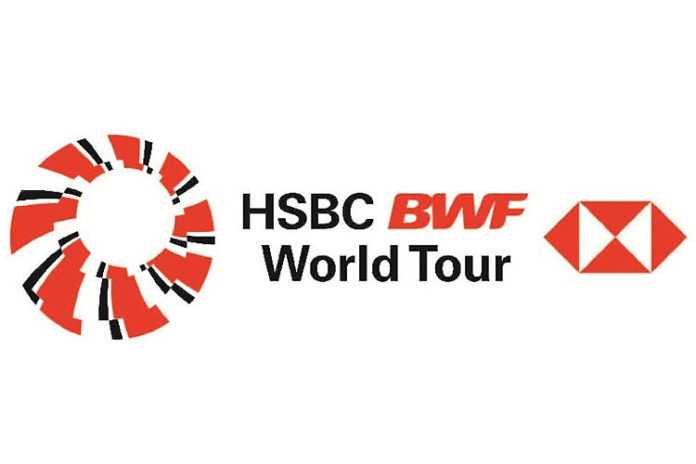Apart from the doping, politics, suspensions and court cases, there was some pretty good sport taking place in 2018. The awards are starting to be announced and one of the best of the year-end awards programs is the Athlete of the Year awards in track & field, presented annually in a big gala in Monaco, the headquarters of the International Association of Athletics Federations (IAAF).
The awards ceremony is coming up next week, on 4 December and the IAAF shared the top-five finalists in the men’s and women’s divisions last week.
(Let’s be clear, the voting is over and the IAAF knows the winners, but they are drawing out the process so that news media will write stories like this one.)
Among the men, the final five:
∙ Christian Coleman (USA) ~ World Indoor Record in the 60 m, World Indoor Champion at 60 m; world leader in the 100 m (9.79) and Diamond League Champion at 100 m.
∙ Mondo Duplantis (SWE) ~ Eight World Junior Records (indoors and outdoors) in the pole vault; World Junior Champion, European Champion, world leader at 6.05 m (19-10 1/4).
∙ Eliud Kipchoge (KEN) ~ Winner of the London Marathon (2:04:17) and Berlin Marathon, where he set a World Record of 2:01:39.
∙ Kevin Mayer (FRA) ~ World Indoor Champion in the heptathlon; world leader in the decathlon with a world record of 9,126 in Talence (FRA) in September.
∙ Abderrahman Samba (QAT) ~ Ran the second-fastest 400 m hurdles time in history (46.98) and was undefeated in nine meets (all in the 47s or better!), including the Asian Games and Continental Cup.
Analysis: Let’s kick Mayer out first, as despite his world record, he failed to finish three of his four decathlons of the year, including the European Championships. Then we can excuse the 19-year-old Duplantis, who competed in an amazing 23 meets: six indoors and 17 outdoors. Forgetting his high school “competitions,” he won only six of 12 international meets; so he can stay home and attend classes at LSU.
Coleman was great when he was healthy, but had only five outdoor meets and won only three of them.
So it has to be between Kipchoge and Samba, the 23-year-old Qatari wonder in the hurdles. Samba was undefeated and undefeatable, winning by large margins in each of his races.
But Kipchoge won two World Marathon Majors races, obliterated the world record of 2:02:57 from 2014 in Berlin with a sensational 2:01:39 and now has a hard-to-believe streak of nine marathon wins in a row over the past five years. The average of his 10 best career marathons is 2:04:00!
So it has to be Kipchoge on merit, but with Samba very close behind. If you want to be cynical about awards – and we know you’re out there – you can predict Samba as the winner to give the Doha organizers of the 2019 World Championships some extra promotional opportunities.
Among the women:
∙ Dina Asher-Smith (GBR) ~ Co-world leader in the 100 m (10.85) and world leader in the 200 m (21.89), both set in winning the European Championships.
∙ Beatrice Chepkoech (KEN) ~ Lowered the 3,000 m Steeplechase world record from 8:52.78 to an astounding 8:44.32, won her last six races of the year, including the African Championships, IAAF Diamond League Final and Continental Cup.
∙ Caterine Ibarguen (COL) ~ First woman to win both the long jump and triple jump at the IAAF Continental Cup (or World Cup in prior years); IAAF Diamond League winner in both events; world leader in the triple jump at 14.96 m (49-1).
∙ Shaunae Miller-Uibo (BAH) ~ Undefeated in 11 individual races in 2018 in the 150 m, 200 m and 400 m; world leader in the 400 m (48.97: fastest since 2009); Commonwealth Games and IAAF Continental Cup winner at 200 m.
∙ Nafi Thiam (BEL) ~ European Champion in the heptathlon and world leader at 6,816.
Let’s eliminate Thiam, last year’s Athlete of the Year, first. She was great in her two heptathlons, but didn’t have as good as year as in 2017, when she won the world title and scored a stunning 7,013 points. Next off the list is Asher-Smith, who ran really fast at the Europeans, but was second in the Diamond League Final 100 m (to Murielle Ahoure/CIV) and the Continental Cup 100 m (to Marie-Josee Ta Lou/CIV). Good, but not good enough.
Ibarguen had a fabulous season, but she’s also out due to a couple of losses in the long jump and marks which were good, but not historic. The other two candidates were, indeed, historic.
How can you compare Kenya’s Chepkoech and Miller-Uibo, who were both absolutely brilliant?
Chepkoech took the women’s Steeple where it has never gone, demolishing the world record by more than eight seconds in Monaco in July. Then she showed this was no fluke, winning the Continental Cup in the Diamond League in 8:55.10, the no. 3 time in history! And she had two more times under 9:00 and now owns five of the top 11 times ever.
But Miller-Uibo was undefeated across a whole bunch of distances. She set a world indoor best in the 300 m at 35.45 in the Millrose Games in early February, then won the 200 m gold at the Commonwealth Games, one seven meets in which she won the 200 m that included Diamond League Final and the Continental Cup.
Miller-Uibo set another world best in the quirky 150 m race at the adidas Boost Boston Games in May and despite running only three times in the 400 m, authored a world-leading win at the Pre Classic (49.52), then made a major statement with a 48.97 victory in the Herculis meet in Monaco in July. That moved her to no. 10 all-time, and consider that if we skip over the steroid-aided Eastern Europeans of the 1980s, Miller-Uibo’s 48.97 places her as the no. 6 all-time, with the no. 7 performance.
Chepkoech lost once, Miller didn’t lose at all.
This is really tight, but an undefeated season, two world bests in odd events and beating the best in the world – convincingly – in both the 200 m and 400 m is enough for me to crown Miller-Uibo.
If Chepkoech were to win on the strength of her breakthrough world record and four marks under 9:00, it would certainly not be an error.
The voting was a three-group process, with the IAAF Council’s votes accounting for 50% of the total. The “IAAF Family” voting accounted for 25% of the total and the fan vote on the IAAF’s social-media sites also was worth 25%. The voting ended on 13 November.
The program will also have awards for the men’s and women’s “Rising Star,” Coaching Achievement, the President’s Award for service to the sport and a “Women in Athletics” award, among others.
The Rising Star award is for under-20 (“junior”) athletes. Among the entrants are Duplantis – who should win the men’s award – and American sprinter/hurdler Sydney McLaughlin, the world leader in the 400 m hurdles and NCAA champion in her one year at Kentucky. McLaughlin will be in contention for the women’s award along with Jamaican sprinter Briana Williams, who doubled at the World U-20 Championships in the 100 and 200 m.
The presentations are on 4 December in Monaco and we can enjoy some talk about athletes and achievements for a few moments before we go back to corruption, doping, Russia, the introduction of a new world ranking system and all the other issues that the IAAF has to deal with. Oh yes, the IAAF Council will be meeting in Monaco earlier on 4 December and will be dealing with all that noise.
Rich Perelman
Editor




























